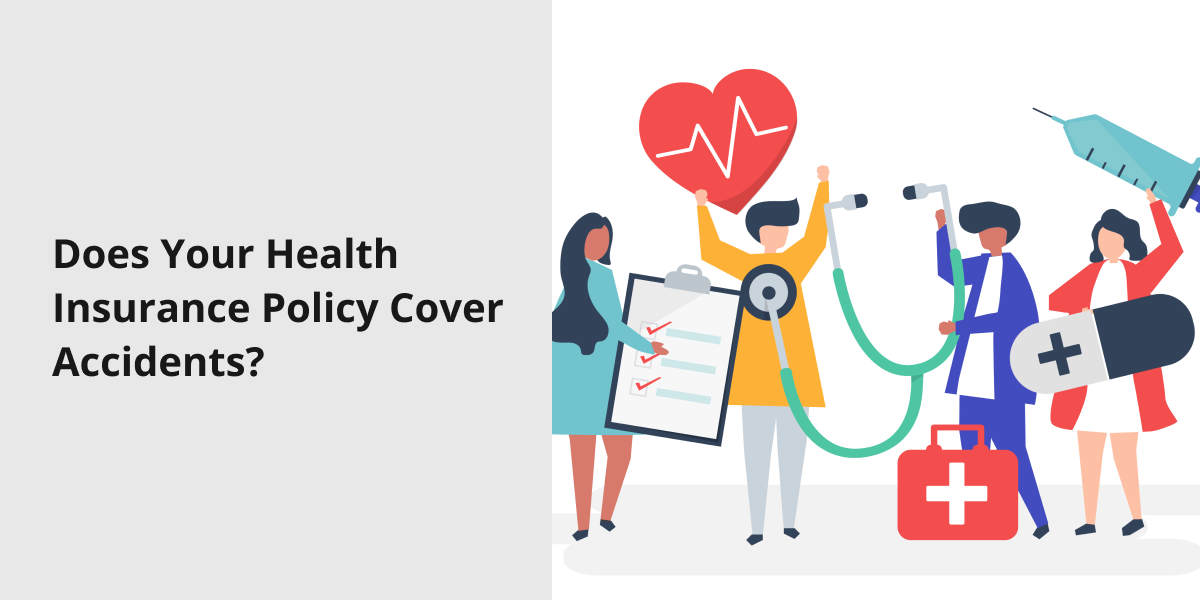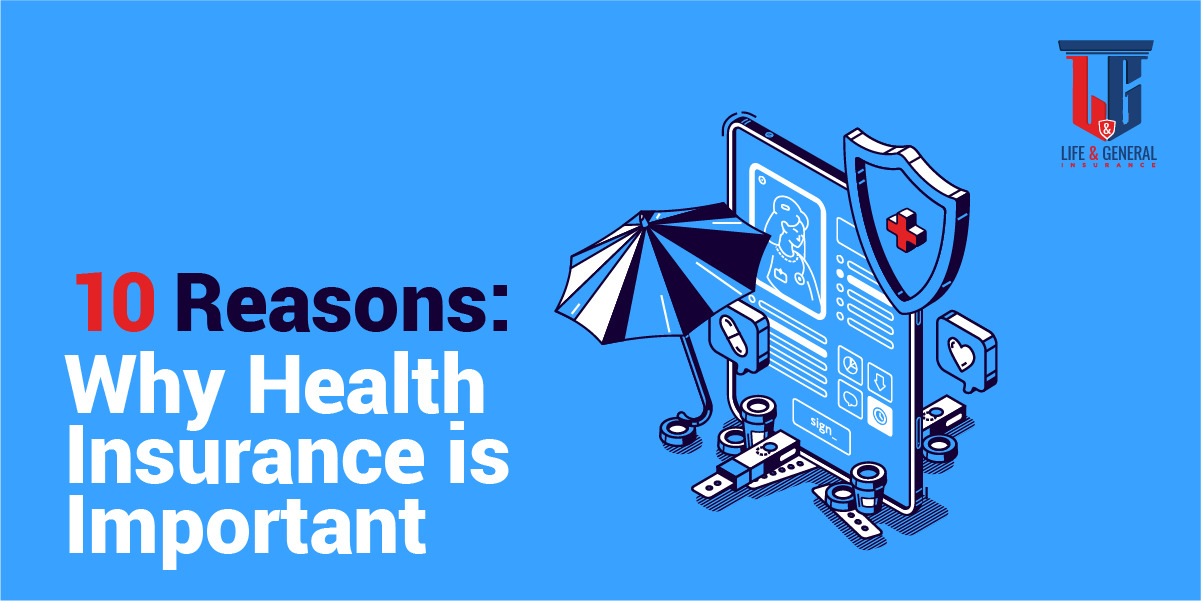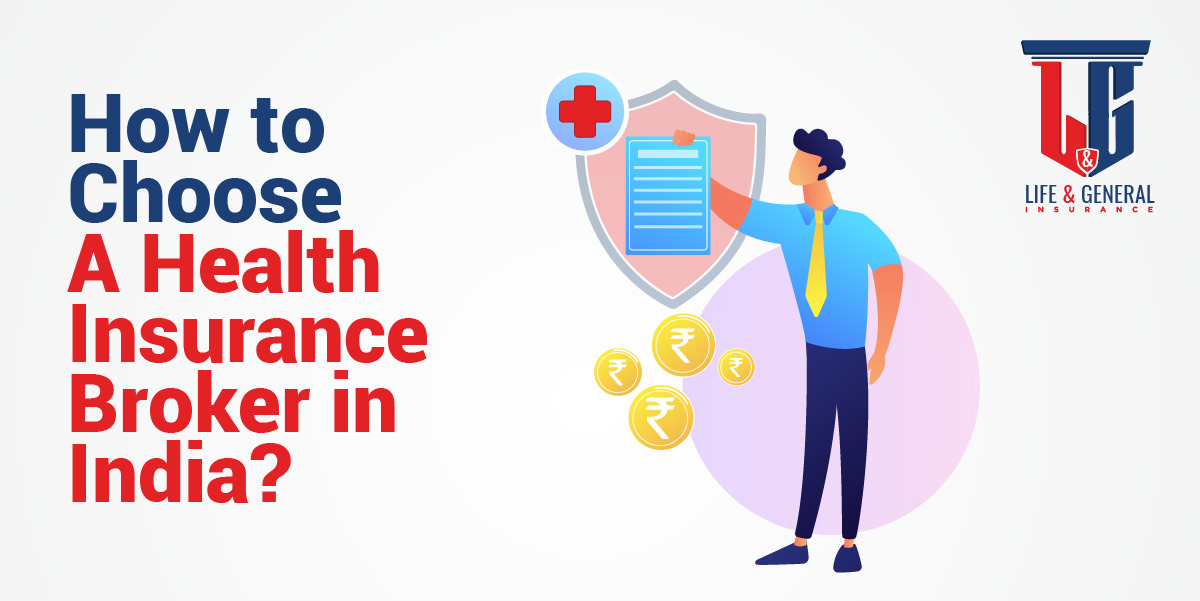Table of Contents
Accidents can happen anytime, anywhere, and the aftermath of these accidents can be both physically and financially challenging. Knowing whether your health insurance policy covers accidents is extremely important so as to achieve peace of mind and financial stability in unfortunate incidents.
Health insurance policies generally provide coverage for accidents, but the extent of coverage can vary widely. It is essential to understand the specifics of your policy, including any exclusions, deductibles, and the range of treatments and services covered. Let us delve into what you need to look for in your health insurance policy to ensure you are completely protected financially in the event of an accident.
What are Accidental Injuries?
Accidental injuries can be understood as unexpected and unintentional physical harm resulting from external or internal factors. These injuries can occur in various settings, such as at home, work, or during recreational activities, and can range from minor cuts and bruises to severe fractures and life-threatening conditions.
Understanding what can be considered as an accidental injury is very important for assessing your health insurance coverage. Generally, policies create a distinction between accidental injuries and other health issues, to ensure that specific provisions are made to address the immediate and often urgent medical needs arising from such incidents.
What is Health Insurance?
Health insurance is a type of insurance policy designed to pay for medical, surgical, and sometimes dental expenses that might be incurred by a patient who is insured. Health insurance offers financial protection by covering a portion of the costs associated with healthcare services, which can include doctor visits, hospital stays, medications, and preventive care.
Having health insurance is extremely important for managing healthcare expenses and ensuring the best medical treatment can be made available at any time. By paying regular premiums, policyholders ensure that they are protected against high medical costs, making healthcare more affordable and accessible.
Related Blog: Health Insurance: Types, Benefits, Eligibility – A Complete Guide For You!
Does a Health Insurance Plan Offer Accident Cover?
Health insurance plans generally offer coverage for accidental injuries, but the specific coverages offered by each insurance plan can vary depending on the policy. This coverage is designed to help with the medical expenses resulting from accidents, such as emergency room visits, surgeries, hospital stays, and follow-up care and more.
Understanding the details of your health insurance policy helps you protect yourself against unexpected financial demands caused by your health. This also makes it important to review your plan’s terms, including any exclusions, limits, and the extent of coverage for various types of accidents, to be fully prepared in case of an unexpected injury.
Types of Accident Covers
Accident covers within health insurance policies can vary. Each different accident coverage in health insurance offers different levels of protection and benefits depending on the plan. These coverages are designed to address a wide range of accidental injuries and their anticipated costs, providing peace of mind and financial security.
Here are some common types of accident covers:
- Personal Accident Insurance: Covers medical expenses, disability, and death resulting from an accident.
- Accidental Death Benefit: Provides a lump sum payment to the policyholder’s beneficiaries in the event of death due to an accident.
- Accidental Disability Benefit: Offers financial support in case of temporary or permanent disability caused by an accident.
- Accidental Hospitalization Cover: Covers hospital expenses incurred due to accidental injuries, including room charges, surgeries, and post-hospitalization care.
- Accidental Dismemberment Benefit: Provides compensation for the loss of limbs or certain functions (e.g., eyesight) due to an accident.
- Emergency Services Cover: Includes ambulance services and emergency room treatments needed immediately after an accident.
- Rehabilitation and Therapy Cover: Covers costs associated with rehabilitation and physical therapy required after an accidental injury.
Personal Accident Insurance
Personal accident insurance can be understood as a specialized policy designed to provide financial protection in the event of unexpected and accidental injuries. This type of insurance covers a wide range of situations, including medical expenses, disability benefits, and compensation for accidental death. It also covers hospitalisation costs, and other pre and post-care services in some cases. It serves as a crucial safety net, ensuring that individuals and their families are financially supported during difficult times caused by accidents.
One of the key benefits of personal accident insurance is its comprehensive coverage. As mentioned earlier, the coverage under personal accident does not end at covering immediate medical costs but also covers emergency treatments and hospital stays, it often includes provisions for long-term care needs, rehabilitation, and income replacement if the policyholder is unable to work due to their injuries. This ensures that the insured and their dependents can maintain financial stability while recovering from an accident.
Why Should You Buy a Personal Accident Insurance Policy?
Investing in a personal accident insurance policy is important to safeguard your and your family’s financial well-being in the unexpected events of unforeseen injuries. We all know that accidents can lead to substantial medical expenses, loss of income, and sometimes require extensive rehabilitation costs. All of this can have a severe impact on your finances without adequate coverage.
By subscribing to a personal accident insurance policy, you are taking proactive steps to shield both yourself and your family from the potentially stressful financial repercussions of accidents. This type of policy not only encompasses coverage for medical bills but also extends benefits for disability and accidental death, providing comprehensive assistance precisely when it is needed the most.
Benefits of Buying Personal Accident Insurance Policy
When you invest in a personal accident insurance policy, you get access to several invaluable advantages, which include financial protection and peace of mind in the event of unexpected injuries. Here are some key benefits:
- Comprehensive Coverage: Personal accident insurance provides coverage for a wide range of accidents, including injuries sustained at home, work, or during recreational activities or driving.
- Medical Expense Coverage: Personal accident policies often cover medical expenses incurred due to accidental injuries, including hospitalisation, surgeries, medications, and specialist doctor’s visits.
- Disability Benefits: In the event of temporary or permanent disability resulting from an accident, the policy provides financial support to help cope with loss of income and additional expenses.
- Accidental Death Benefit: If the insured passes away due to an accident, the policy pays out a lump sum amount to their beneficiaries, the surviving family, offering financial security during a difficult time.
- Rehabilitation Assistance: Personal accident insurance providers often include provisions for rehabilitation and therapy expenses needed for recovery after an accident. This ensures comprehensive support for the insured’s recovery journey.
- 24/7 Coverage Worldwide: Most policies provide global coverage. This means whether you are at home or travelling abroad, personal accident insurance provides round-the-clock coverage, offering peace of mind and financial security no matter where you are.
Difference Between Personal Accident Insurance and Health Insurance
Personal accident insurance and health insurance are both important types of coverage and are important for financial security during difficult times. But both these coverages serve distinct purposes and offer different benefits. Understanding the differences between the two can help individuals make informed decisions about their insurance needs.
| Aspect | Personal Accident Insurance | Health Insurance |
| Coverage | Provides coverage specifically for accidental injuries. | Offers broader coverage for various medical expenses, including accidents, illnesses, and preventive care. |
| Scope of Coverage | Typically covers accidental death, disability, and medical expenses resulting from accidents. | Covers a wide range of healthcare services, including doctor visits, hospitalization, surgeries, medications, and preventive care. |
| Purpose | Personal accident insurance is designed to offer financial protection in the event of unexpected accidents and injuries. | Health insurance is aimed at managing healthcare costs and ensuring access to medical treatment for illnesses, injuries, and preventive care. |
| Types of Benefits | Includes benefits such as accidental death benefits, disability benefits, medical expense coverage, and rehabilitation assistance. | Offers benefits for medical treatments, hospital stays, surgeries, prescription drugs, preventive care, and sometimes dental and vision care. |
| Limitations | This kind of insurance generally does not cover illnesses, pre-existing conditions, or non-accidental injuries. | Health insurance coverage may have exclusions, deductibles, and copayments, and may not cover certain treatments, elective procedures, or alternative therapies. |
| Premiums | Premiums are typically lower compared to health insurance premiums. | Premiums may be higher due to the broader coverage provided. |
Understanding these differences can be of great help for people who confuse these terms and also need clarity to make more informed decisions. To summarise, personal accident insurance provides specialised coverage for accidental injuries, while health insurance provides extensive coverage for a variety of medical expenses.
Selecting the Right Insurance For You
Choosing the right insurance coverage makes all the difference in protecting yourself and your loved ones against unexpected financial burdens and unfortunate events. Here are some key considerations to help you select the insurance that best fits your needs:
- Assess Your Needs: The first step in identifying what insurance suits you the best is to evaluate your current health condition, lifestyle, and financial situation to determine the type and level of coverage you require.
- Coverage Options: Once you have an understanding of what fits you the best, try to compare the coverage options offered by different insurance policies. At this point, it is also important to consider factors such as medical expenses, hospitalization, prescription drugs, and preventive care.
- Costs and Premiums: Another important consideration is the premiums, deductibles, copayments, and out-of-pocket expenses associated with each insurance plan to ensure it aligns with your budget.
- Provider Network: It is extremely important to check the network of healthcare providers, hospitals, and clinics included in the insurance plan to ensure you have access to quality care when needed. Especially connectivity comes into play when you are in remote areas or smaller cities and your insurance provider is more connected with major city hospitals and healthcare providers
- Policy Benefits: Another important aspect is to review the benefits and limitations of each insurance policy, including coverage for pre-existing conditions, exclusions, and waiting periods, to make an informed decision.
- Customer Reviews and Reputation: Research the insurance company’s reputation, customer reviews, and ratings to ensure reliability, prompt claim settlement, and quality customer service.
Conclusion
Choosing the right insurance is important. You need to think about your needs, preferences, and financial situation. You might need to choose between personal accident insurance and health insurance, or look at different policies in each category to make a better decision. It is important to consider the benefits, costs, and limits of the coverage to make a good choice.
To make the right decision, you should think about your needs, compare coverage options, consider costs, check provider networks, review policy benefits, and research insurance companies. We understand that this can be a taxing process and you might not always understand the heavy terms used in the policy documents. Life and General Insurance can help you choose the right plan that gives you the best protection and peace of mind for you and your family. Remember, having the right insurance can give you financial security and help when unexpected emergencies or healthcare needs come up.
Know Your Options: Evaluate Your Health Insurance Coverage for Accidents!
When it comes to safeguarding yourself against the uncertainties of accidents, knowing what you are protected against can offer instant peace of mind. With assistance from Life and General Insurance experts, you can thoroughly evaluate your options to ensure comprehensive protection. Accidents can happen unexpectedly, leading to not only physical but also financial strain. By assessing your health insurance coverage with insights from professionals from Life and General Insurance, you can gain clarity on your policy’s strengths, limitations, and any additional coverage you may need.
Life insurance providers often offer personal accident insurance as part of their portfolio, focusing on providing financial support to policyholders and their families in the event of accidental injuries or fatalities. On the other hand, general insurance companies offer health insurance policies that cover a broader spectrum of medical expenses, including those resulting from accidents. By getting the expertise of professionals from Life & General Insurance, you can be sure that you have a comprehensive safety net in place, addressing both your short-term medical needs and long-term financial security in case of accidents.




